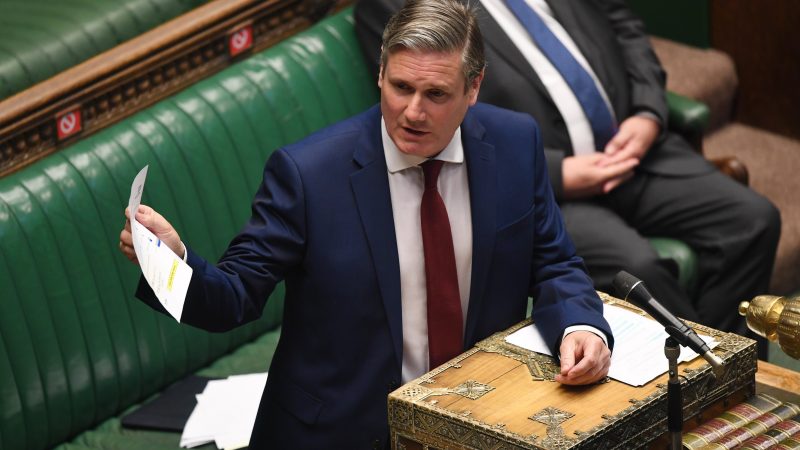
It has been 100 days since Keir Starmer became Labour leader. There were always going to be tough challenges for any successor to Jeremy Corbyn: the party has just suffered a devastating defeat, from which it would take a historical turnaround to recover in a single term, the internal (should I say eternal?) warfare is vicious, and significant numbers of members have felt deep hurt. He was elected during a Brexit transition period after an election all about that issue. And, most importantly, Starmer took over in the middle of a deadly pandemic that has been particularly fatal in the UK where the government response is shambolic.
The new leader has adopted a softly, softly approach to opposing the government and a ruthless one for internal party politics. Naturally, this has been divisive among Labour members, many of whom would have expected the reverse. Starmer has reshaped the party in his image remarkably quickly. He has forged a slim but reliable majority on Labour’s national executive committee, replaced Jennie Formby with a general secretary who is widely considered to be on the party’s right, and sacked his Corbynite leadership opponent from the shadow cabinet. The Labour frontbench has been thoroughly overhauled, both in terms of who’s on it and the tone that they take in interviews. The leadership has slowly ramped up criticism of the Tories over Covid-19, but caution is still the watchword for media engagement.
The core objective of Starmer’s team appears to be ‘detoxifying’ the Labour brand. If we’re assessing these 100 days on that basis, the leader’s brilliant personal approval ratings certainly give cause for optimism – but the party has some catching up to do, still lagging behind the Conservatives in voting intention despite their calamitous response to the crisis. Perhaps most notably, the Keir Starmer/Anneliese Dodds team scores badly compared to the top Tory team including Rishi Sunak, who also presents a danger as a charismatic but crucially competent-looking politician with possible leadership ambitions.
Much of Labour’s troubles right now relate to its economic policies, as highlighted by the recent confusing messages on a wealth tax. Starmer said he supports the idea in principle, but it is understood that the leadership is not backing such a proposal. The party seems to want to get away with saying nothing on taxes before the next general election campaign, but a key lesson from the 2019 defeat arguably should be that Labour needs a decent run-up for its policies – if we want a fair hearing, our ideas need to be normalised first. And Starmer’s personal appeal must be put to good use. There is a risk that the Tories could appear to outflank Labour from the left on the economy.
A message from LabourList to kick off the week: huge thanks to everyone who has donated over the past couple of weeks, and even bigger thanks to those who have become regular donors. Your support, along with that of Unite and UNISON and hopefully other trade unions in the coming months, means our organisation can grow. We are now looking for another journalist to join our team, which will allow us to expand LabourList’s coverage of the labour movement and explore new ways of giving a platform to views from across the party. The details can be found here.
Sign up to LabourList’s morning email for everything Labour, every weekday morning.



More from LabourList
‘AI regulation is key to Labour’s climate credibility’
Ben Cooper column: ‘Labour needs to rediscover its own authentic populism’
‘Westminster rethought: a new purpose built site and a museum of democracy’